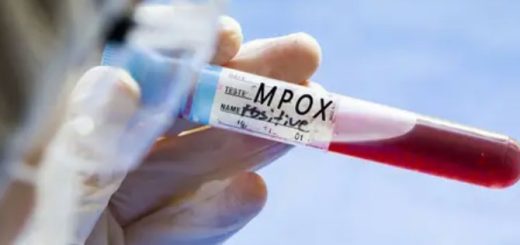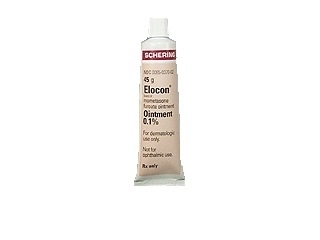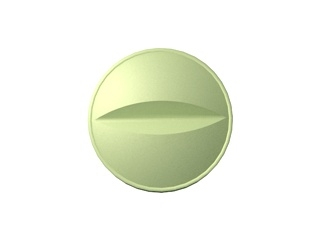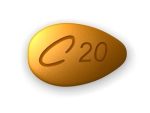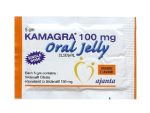Buy Synthroid (Levothyroxine)
Buy Synthroid (levothyroxine) without a prescription
Synthroid (levothyroxine) is a thyroid hormone. This drug, also called L-thyroxin, is prescribed for hypothyroidism or when the thyroid gland is surgically removed. In the latter case, the use of general strengthening drugs is extremely important. Hypothyroidism can occur at any age.
The drug is available in the form of tablets. It is taken orally. It should be taken at the same time each day to maintain a consistent effect. If you forget to take your medicine, take it as soon as you remember. However, if it is almost time for the next dose, in this case, ignore the missed dose and resume treatment as if nothing had happened. First of all, don’t double your dose to make up for your forgetfulness!
Dosage of Levothyroxine
The dosage and frequency of administration of Synthroid (levothyroxine) are set depending on the level of the hormone necessary to regulate the concentration in the blood. This level is determined by blood tests. Dosage may vary depending on the patient’s general health, weight, severity, and duration of symptoms caused by low thyroid hormone levels. It is advisable to strictly follow the instructions of the doctor since all requirements are individual.
Buy Cheap Synthroid Online
Synthroid (levothyroxine) is available in dosages: 25 mcg, 50 mcg, 75 mcg, 88 mcg, 100 mcg, 112 mcg, 125 mcg, 137 mcg, 150 mcg, 175 mcg, 200 mcg. Synthroid should be stored away from light and moisture at room temperature. Keep the medicine out of the reach of children.
The distribution of thyroid hormones in the tissues and fluids of the human body is not fully understood. More than 99% of circulating hormones bind to serum proteins. Certain physiological conditions can alter the binding of thyroid hormones to proteins available for thyroid hormone binding. These effects must be considered when testing thyroid function.
The liver is the main site of the degradation of the hormones T4 and T3. Thyroid hormones are mainly excreted by the kidneys. In humans, approximately 30 to 55% of a dose of levothyroxine sodium is excreted in the urine and approximately 20 to 40% in the feces. Levothyroxine is eliminated from the body slowly, over 6–7 days in a healthy person, and may decrease hyperthyroidism or increase in patients with hypothyroidism.
The use of Levothyroxine
Replacement or additional therapy for hypothyroidism of any etiology:
- primary hypothyroidism resulting from thyroid dysfunction, primary atrophy, the partial or complete absence of the thyroid gland, or as a result of surgery;
- secondary (pituitary) hypothyroidism;
- tertiary (hypothalamic) hypothyroidism.
Interactions with food and some drugs
The simultaneous use of antidepressants and levothyroxine can enhance the therapeutic and toxic effects of both drugs. Toxic effects may include an increased risk of cardiac arrhythmia and CNS stimulation, and the onset of action of tricyclic drugs may be accelerated.
Excessive doses of thyroid hormones when used with growth hormones can accelerate the closure of the epiphyseal growth plates. Interaction with food: the use of certain foods may affect the absorption of levothyroxine, which requires dose adjustment. Soy flour (infant formula), cottonseed flour, walnuts, calcium and calcium-fortified orange juice, and dietary fiber may reduce the absorption of levothyroxine.
Thyroid hormones, including levothyroxine, should not be used to treat obesity or weight loss. In euthyroid patients, doses in the daily hormonal requirement range are ineffective for weight loss. Large doses can cause serious or even life-threatening intoxication. Levothyroxine has a narrow therapeutic window. Regardless of the indication for use, the dose should be carefully titrated to avoid the effects of over- or under-treatment. Many drugs interact with Synthroid, requiring dose adjustments to maintain the therapeutic response.
Excessive use of Synthroid can lead to adverse cardiovascular effects such as increased heart rate, increased heart wall thickness, and contractility, and may also cause angina pectoris or arrhythmias. Levothyroxine sodium should be used with caution in patients with cardiovascular disease, including angina pectoris, coronary artery disease, and hypertension, and in the elderly, who are more likely to have underlying heart disease. In such patients, therapy should be started at lower doses than those recommended for use in young adults or in patients without cardiovascular disease.
In women, long-term therapy with Synthroid is associated with increased bone resorption. Increased bone resorption may be associated with an increase in the level of calcium and phosphorus in the blood serum and their excretion in the urine. Therefore, such patients are recommended to prescribe the minimum dose of levothyroxine.
In patients with nontoxic diffuse goiter or nodular thyroid disease, especially in the elderly or with concomitant cardiovascular diseases, therapy with levothyroxine sodium is contraindicated if the serum TSH level is already low, due to the risk of developing severe thyrotoxicosis. If serum TSH levels do not decrease, levothyroxine sodium should be used with caution. At the same time, thyroid function should be closely monitored for signs and symptoms of hyperthyroidism.
